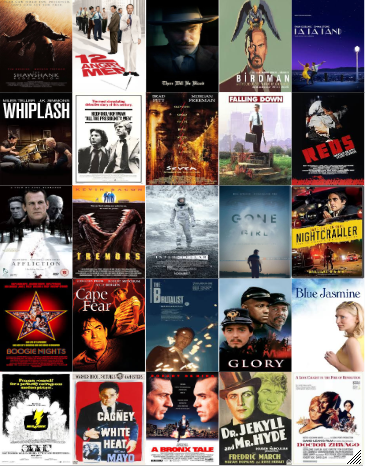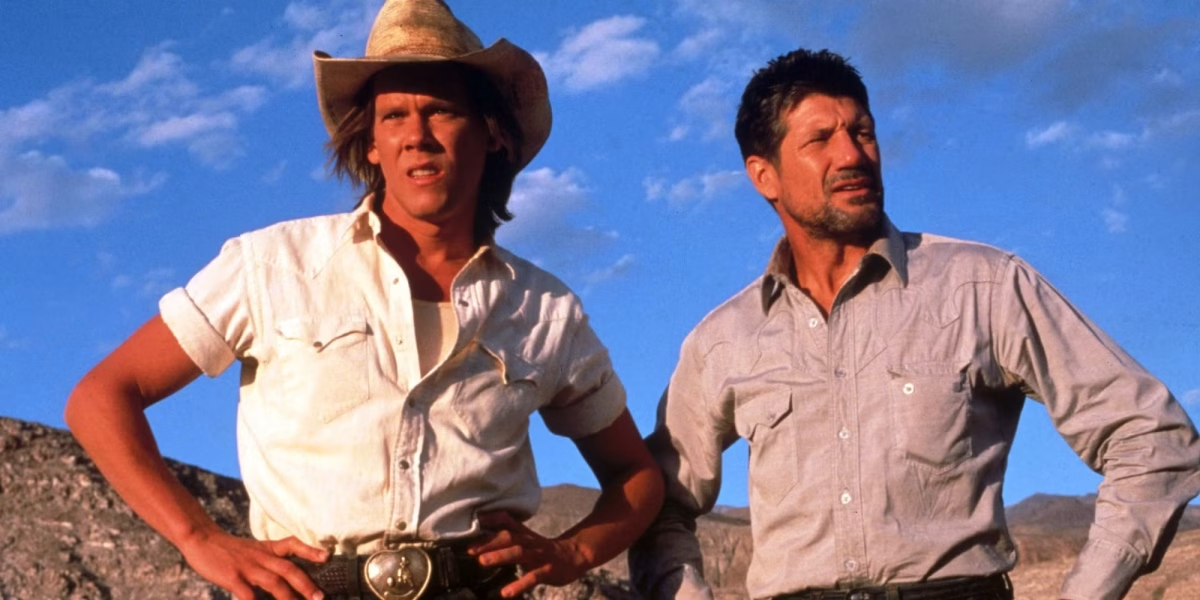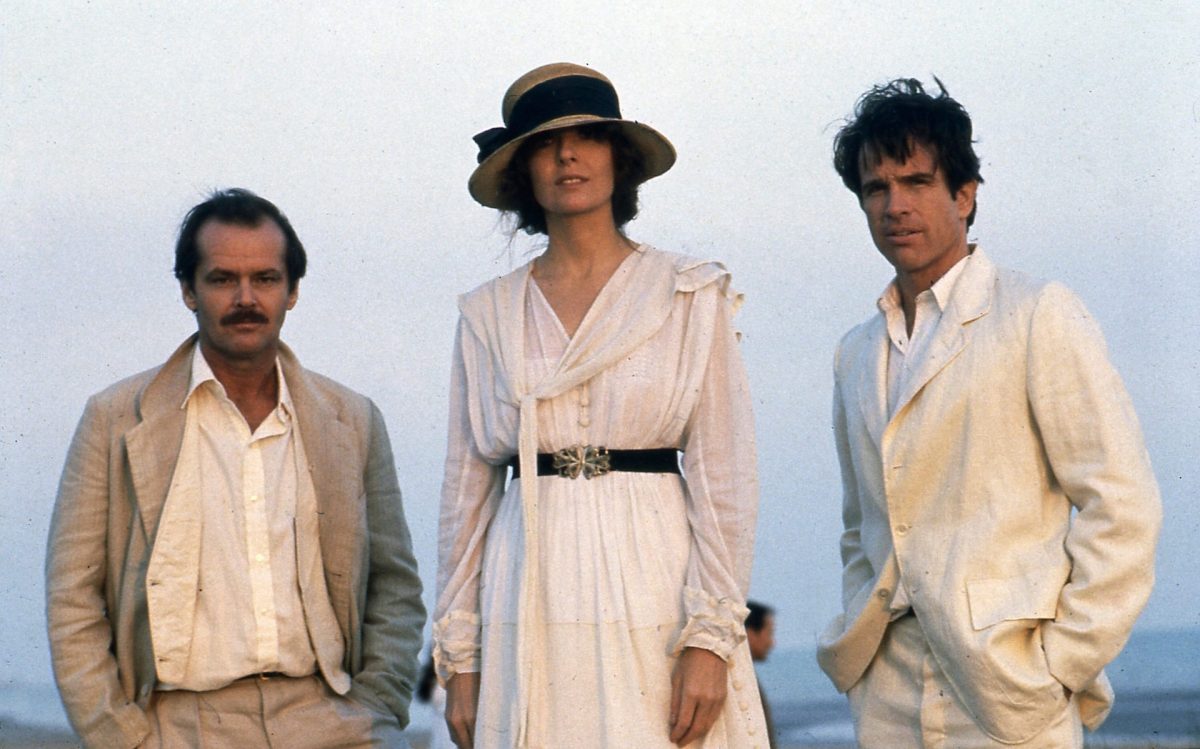Incredibly long historical romance dramas seem to be a subgenre of film unto itself.
Films like Titanic, Dr. Zhivago, Spartacus, and Gone With The Wind are commonly considered some of the greatest films ever made.
Now these films aren’t for everybody. Some would consider them incredibly melodramatic or historically inaccurate. Others, just unwilling to sit through a three hour plus long movie.
Even so, the impact these films have made on the American cinematic landscape cannot be denied.
While I certainly enjoyed these classics, in my mind the peak example of this type of cinema is the film Reds, directed by the famously talented Warren Beatty.
Unlike the aforementioned films, Reds is actually about a real person – an American journalist turned Political Activist turned Communist, named John “Jack” Reed.
Based on the book written by Reed himself, Ten Days That Shook the World, the movie expressly details Reed’s political career, as well as his on-again, off-again relationship with fellow journalist Louise Bryant.
This film features an all-star cast consisting of Warren Beatty, Diane Keaton, Jack Nicholson, Gene Hackman, Paul Sorvino, and an Academy Award winning performance by Maureen Stapleton.
What really makes this movie stand out for me next to its contemporaries is the fact it’s based on a real person and real events. Warren Betty decided to interlace interview footage of people who were at the events being depicted and who knew Reed.
The “witnesses,” as they are credited, add an incredibly interesting angle to this film. Although it is based on Reed’s book, we can’t be sure that the events happened in the same way he describes them. Even within the movie, Jack Reed regards himself as an almost savior of working class America and the Russian people. If Beatty portrayed Reed correctly, of which I’m going to go out on a limb and say yes, then his accounts cannot be fully trusted. To that end, having these real life people help verify and add clarity to certain details is incredibly valuable.
There are 32 total different “witnesses” featured in the film, representing all age ranges and all levels of knowledge. Hearing their different accounts and perspectives of events helps to put together the full picture of what truly happened, as well as set a timeline for the events themselves..
The Russian Revolution was a very interesting and impactful time in history. It was when the people fought back against the centuries of imperial rule and political corruption. It was also during this time when the word, “Communism” started to get thrown around.
That was the time for Jack Reed to make his legacy.
Before getting into politics, Jack Reed was a journalistic writer who was a big supporter of the American working class. He believed that they should unionize for better work hours and more viable wages. He sympathized with their struggles and believed them to be the backbone of the country. He also believed that if Russia could have a revolution of this nature then so could America. He felt that a communist form of government was the best form of government. He even went on to be one of the founding members of the “Communist Labor Party of America”.
If reading that bored you, I don’t blame you. Politics can seem boring, and my explanation probably made them especially so. You have to remember though–politics are what Reds are about.
To that end, these have to be some really interesting politics for the film to be enjoyable. While yes, the Russian revolution was certainly an interesting time in the world’s history, it’s truly how Warren Beatty portrays it that really makes it exciting.
Beatty gives fiery speeches that effectively weave in topics like political reform, workers compensation, and the rights of the average man. In fact, these topics are worked in so well that one doesn’t even realize that it’s politics that they are talking about. You end up just being so enamored with the performances, that it doesn’t even matter to you.
Warren Beatty–who wrote, produced, directed, and starred in this film–is able to show how truly talented he is. Juggling several different people, all with different characterizations and motives, he could have very easily done what Hamilton ended up doing. Hamilton portrays the main subject as a near-perfect man who constantly has the world falling at his feet. Much like Lin-Manuel Miranda in Hamilton, Beatty had almost complete control over the production of Reds. He could have very easily turned this film into an ego trip and made Jack Reed out to be the center of the universe, to which all characters gravitate around.
While Reed is definitely portrayed as a highly intelligent, respected and desirable man, Beatty does not shy away from the less-than-savory parts of his personality and overall life.
This manifests no better than in the character of Eugene O’Neill, played by the also endlessly talented Jack Nicholson.
Eugene O’Neill, for those who don’t know, was a famous poet and playwright in the first half of the 19th century.
He was also a personal friend and romantic rival for Jack Reed.
Eugene O’Neill is one of few people within his inner circle who are willing to see the flaws in Reed–one of which is Reed’s treatment and near neglect of his wife, Louise Bryant.
Louise Bryant, played by Diane Keaton, is also a journalistic writer. Unlike her husband, however, she doesn’t dilute herself into thinking that she’s any real political figure. She was content with writing her pieces and documenting what was going on in Russia.
The only reason why she got involved with Reed in the first place is because of the name he had made for himself being on the frontlines of the war. She initially only wanted to interview him to get his opinion on certain political matters for a story she was writing.
Reed charms her and the two of them eventually marry, despite the fact that Bryant was already married to someone when she met Reed. After they get married, she ends up meeting Reed’s other friends who have also convinced themselves that they are political activists. There was only one among them that was an actual activist, that being Emma Goldman, who is best known for being a figure in the women’s suffrage movement. The problem that she ends up facing is that no one in Jack’s circle takes her or her work seriously. She ends up being drowned out and forced out of the conversation altogether. This obviously doesn’t sit well with a woman who is so used to having her voice heard on important political matters.
Enter Eugene O’Neill.
Behind the alcohol-lined bitterness and a healthy helping of self-delusion lies a true romantic.
Eugene O’Neill wasn’t afraid to express his true feelings for Louise Bryant, regardless of the fact that she was the wife of one of his friends. He even goes as far as to say, “If you were mine, I wouldn’t share you with anybody” when Jack is at a political rally in Chicago. In O’Neill’s eyes, Jack doesn’t treat Louise the way he should, and believes that he himself would be a better partner for her than Jack is.
His words end up moving Louise so much to the point that she ends up having a several month long affair with O’Neill while Jack is in Chicago.
In this type of movie there is always a love triangle. In Titanic, although Rose loved Jack she was engaged to Cal. In Gone With the Wind, although Rhett made his love for Scarlett no secret, it was her blind love for Ashley that kept them apart for so long.
When Jack comes back, he ends up catching the two of them kissing before anybody knows he’s there. Later, when Louise tries to confess the affair to him at a party, Jack, in so many words, says that he knew about it and doesn’t care. He tells her to go to sleep so he can continue his work.
This scene alone reveals something rather interesting about Jack Reed. It’s the fact that he is so focused on his work, he doesn’t care if the woman he supposedly loves is unfaithful with one of his friends in his absence.
This is seen later in the movie after the “Communist Labor Party of America” is split in half. Jack is elected to go to Russia to get the Soviet Union to recognize his half as the official party, and he leaves Louise with nothing other than assurances that he’ll be “back before Christmas”.
Jack certainly loves Louise, but he loves his work more. In Hamilton, this sentiment is portrayed as an interesting quirk of his character. In Reds, it is his biggest flaw and what keeps him from building meaningful relationships with anybody. It’s exactly what Eugene O’Neill was talking about when he discussed “sharing Louise”–it wasn’t sharing time with other women, it was sharing time with his work.
Even so, Louise and Jack always find their way back to each other, like two ships passing in the night.
Reds is the story of love and of politics. It’s the story of a man named Jack Reed and the people who knew him. It’s a story about the changing world and the people who documented it. It’s the story of a man so passionate about his work that he was unable to see what was going on right in front of him. It’s the story of people who left their mark on history, forever.
Warren Beatty is a man who has had nothing short of an amazing career. He has more than proven himself as a filmmaking legend and an icon. From a career and a reputation like his, I believe Reds to be Beatty’s crowning achievement. It’s the perfect representation of his talents in almost all aspects of filmmaking. Reds is a sweeping epic that shows how truly great movies can be when talented, inspired, and passionate filmmakers are allowed to show us their vision in its truest form.
With that, my personal rating for the film Reds is 9/10.
“In Reel Time”
Tristan Good































